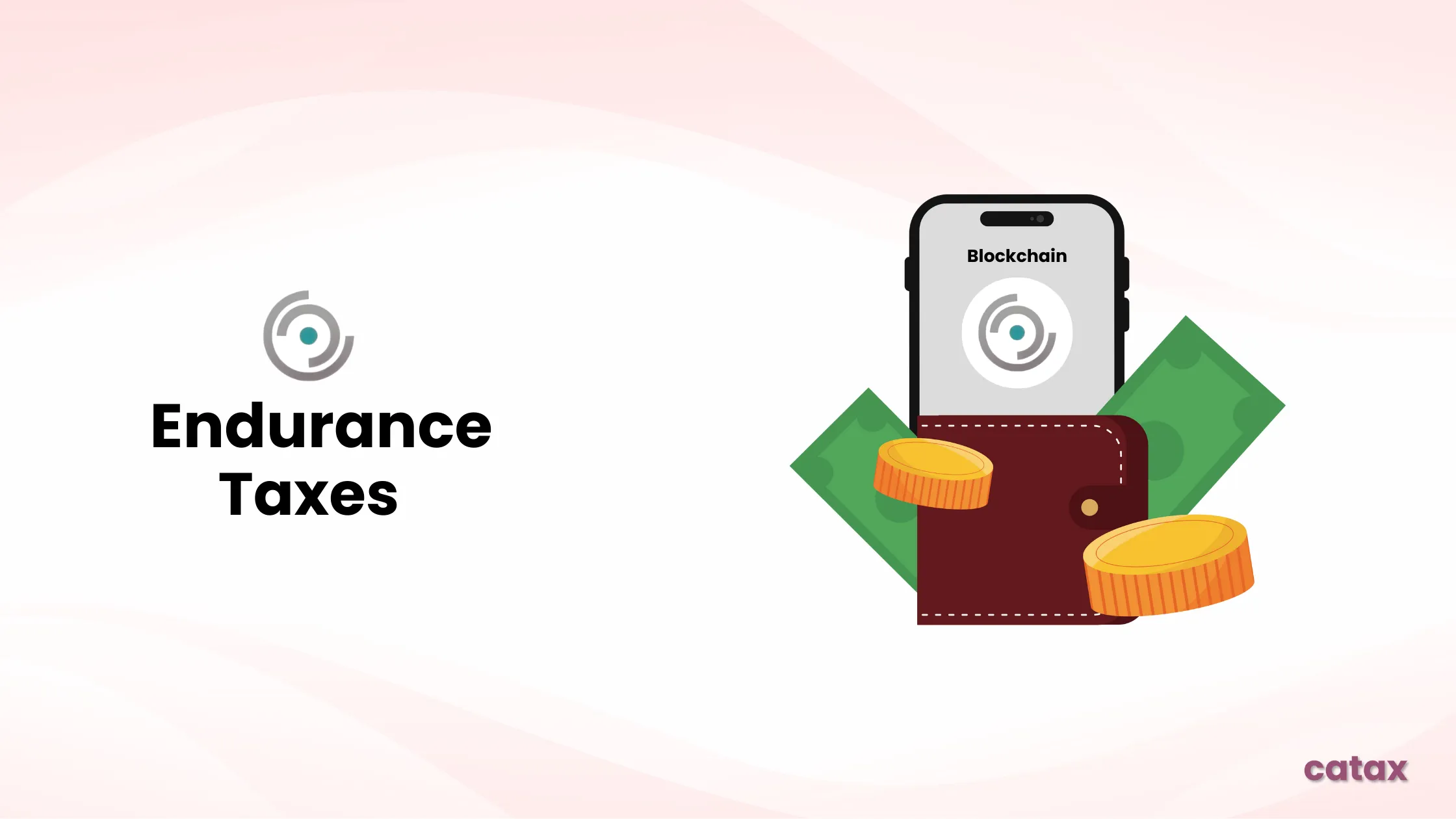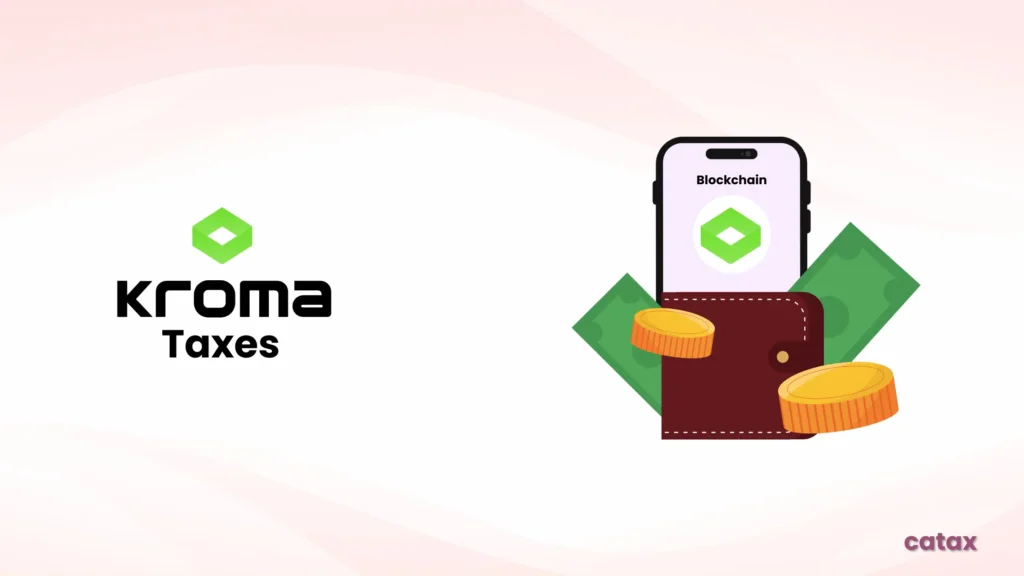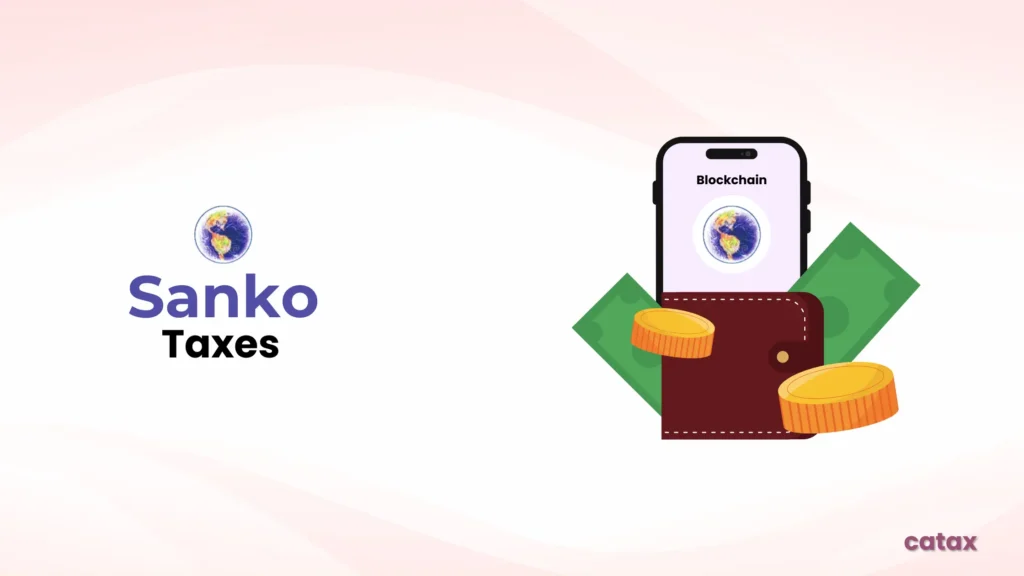Cryptocurrency tax rules vary by country, and Endurance (END) taxes transactions may be taxed differently based on local regulations. Whether you buy, sell, trade, or stake END, understanding how tax authorities classify these activities helps you stay compliant and avoid penalties.
This guide simplifies Endurance tax rules so you can manage your crypto taxes confidently and stay on the right side of the law.

- How to Connect Your Endurance Wallet to Catax?
- Are Endurance (END) Transactions Taxable?
- Can You Deduct Trading Fees and Other Costs?
- How Is Endurance (END) Taxed Based on Holding Period?
- How Is Staking Income Taxed?
- How Countries Tax Staking Rewards
- Can You Claim Endurance (END) Losses for Tax Benefits?
- How to Stay Compliant with Endurance (END) Tax Rules
How to Connect Your Endurance Wallet to Catax?
To track your Endurance (END) transactions and calculate taxes effortlessly, follow these simple steps to connect your wallet to Catax:
- Open your Endurance wallet or use a supported block explorer.
- Copy your public wallet address from the Endurance wallet.
On Catax:
- Log in and select your country.
- Choose Chain, then search for Endurance Wallet.
- Paste your public address and click Connect.
Once connected, Catax will automatically track your END transactions and make your crypto tax reporting easier and more accurate.
Calculate My Taxes ➤Are Endurance (END) Transactions Taxable?
Yes, in most countries, Endurance (END) transactions are taxable. Tax authorities may classify END as a capital asset, property, or income based on how you use it.
When Do You Have to Pay Taxes on Endurance (END)?
You may be required to pay taxes when you:
- Sell END for a profit – If you sell Endurance tokens at a higher price than you paid, the gain is typically subject to capital gains tax.
- Trade END for another crypto – Exchanging END for tokens like Bitcoin or Ethereum is often treated as a taxable event.
- Use END for purchases – Spending END on goods or services may create a taxable gain if the value increased since you acquired it.
- Earn END through staking – Staking rewards in END are generally treated as income and taxed when received.
- Receive END as payment – If you’re paid in END for services or products, the market value at the time is considered taxable income.
As tax treatment varies by country, check your local crypto tax guidelines.
Can You Deduct Trading Fees and Other Costs?
Many END users ask whether they can deduct associated costs. This depends on the rules in your country.
Some jurisdictions allow deductions for:
- Trading fees for buying or selling END
- Network fees for transferring END between wallets
- Security costs like hardware wallets or key management tools
Others may only allow:
Refer to your country’s tax laws to understand which expenses are deductible.
How Is Endurance (END) Taxed Based on Holding Period?
Your tax rate on END gains might change based on how long you held the token:
- Short-term holdings (under one year) – Typically taxed as regular income.
- Long-term holdings (over one year) – May qualify for reduced tax rates in some countries.
- Flat-rate systems – Some countries apply the same tax rate regardless of the holding period.
Knowing your country’s rules helps you make informed decisions and minimize your tax burden.
You can also check out our Country-Specific Guide for Crypto in Your country. This guide provides insights on regulations, tax implications, and compliance measures breifly explained for each country.
How Is Staking Income Taxed?
Staking Endurance (END) tokens can be a great way to earn passive income—but how you’re taxed depends on where you live. Some countries tax staking rewards when you receive them, while others wait until you sell or exchange the tokens.
How Countries Tax Staking Rewards
- Taxed as income – In some countries, staking rewards are treated like salary. Taxes are due when you receive the rewards, and they’re taxed at your regular income tax rate.
- Taxed as capital gains – In other regions, staking rewards are taxed only when you sell or trade them. Here, you pay tax only on the profit you make.
Before you stake your END tokens, understand your country’s tax rules. Some governments impose taxes even if you don’t sell your rewards.
Can You Claim Endurance (END) Losses for Tax Benefits?
Selling END at a loss could reduce your tax bill—but again, this depends on your country’s tax treatment of crypto losses. Here are common approaches:
- Loss carryforward – If you don’t have gains this year, you might be able to carry your losses into future years to offset future taxes.
- Limited deductions – In certain countries, crypto losses aren’t deductible at all.
Keep detailed records of your transactions to ensure you can accurately report any losses and claim benefits if allowed.
How to Stay Compliant with Endurance (END) Tax Rules
As regulations evolve, it’s essential to stay on top of tax laws to avoid penalties. Here’s how:
- Know how END is taxed in your country – Are earnings treated as capital gains, income, or business income?
- Track all your transactions – Record every END buy, sell, trade, staking reward, or spend.
- Use a crypto tax solution like Catax – Tools like Catax automate tax tracking, reporting, and filing for your END transactions.
- Consult a tax expert – If you’re unsure, a local crypto-savvy accountant can help you stay compliant.
Stay informed, stay organized, and handle Endurance taxes confidently.
Book a Free Consultation Now →

